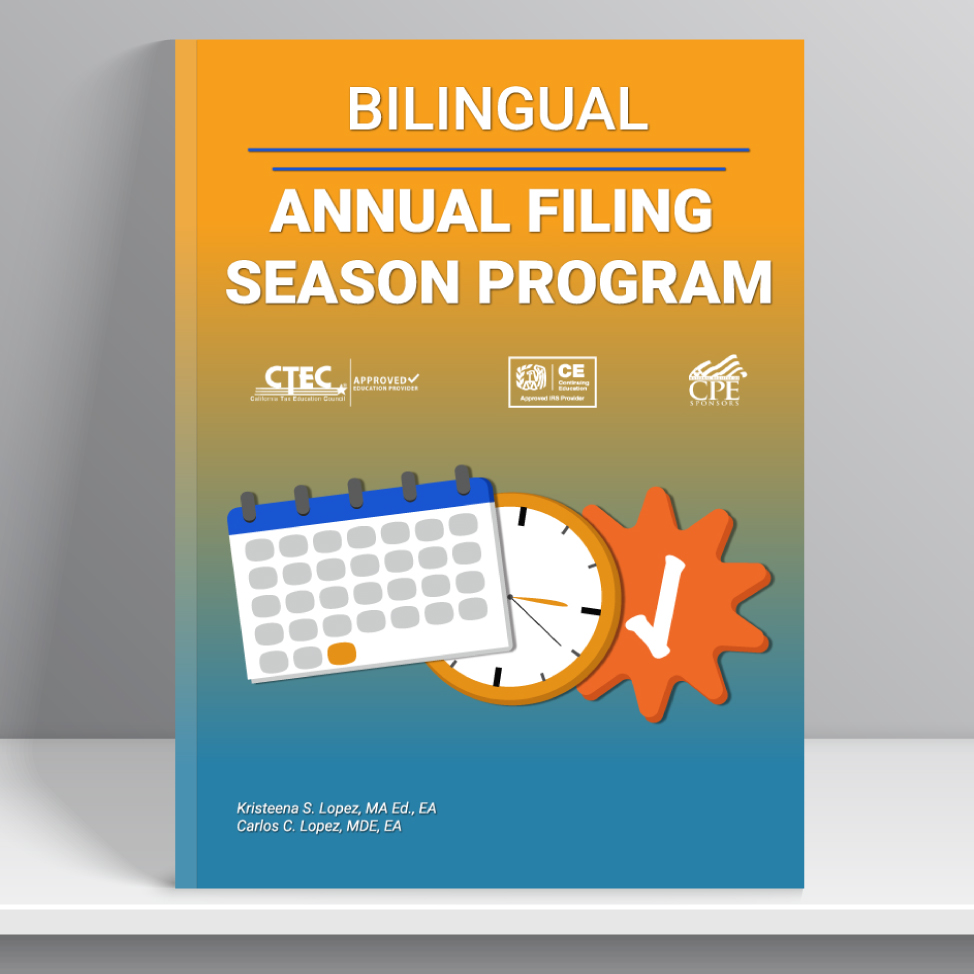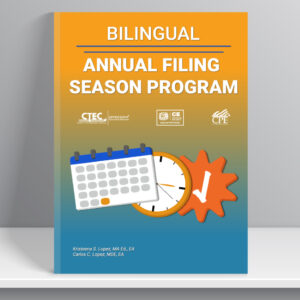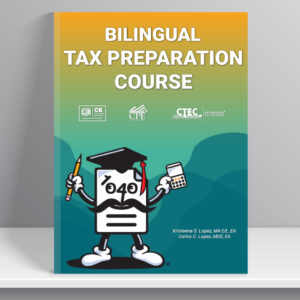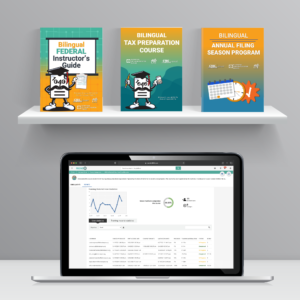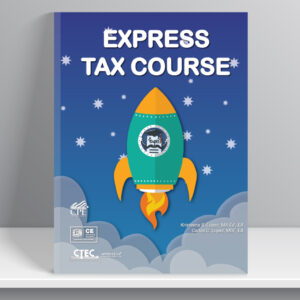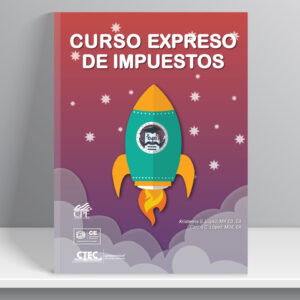Part I: Ethics and Best Practices
This chapter will explain how to determine who qualifies as a tax return preparer, what representation rights a preparer has, how that individual is bound by the Circular 230 guidelines, and what it means for a tax preparer to behave ethically and responsibly.
Part 2: Federal Tax Law
Income
The IRS has the authority to tax all income from whatever source it is derived. This includes compensation for services, gains from dispositions of property, interest and dividends, rent and royalties, pensions and annuities, gambling winnings, and even illegal activities. All such income a person receives is collectively referred to as “worldwide income.” However, not all money or property is taxable or subject to tax. This chapter will cover the different types of taxable and nontaxable income and show you where and how to report such wages on a professionally prepared tax return. A tax professional must recognize the different kinds of taxable income, tax-exempt income, and other income included in Schedule 1, line 21, and must know how to figure out the taxable percentage on Social Security benefits.
Tax Credits and Payments
A nonrefundable tax credit reduces the amount of tax liability that may have to be paid. Unlike a deduction, which reduces the amount of income that is subject to taxation, a credit directly reduces the tax itself. There are two types of credits: nonrefundable, which cannot reduce tax liability below zero, and refundable, which can reduce tax liability below zero, resulting in the need for a refund.
Other Taxes and Taxpayer Penalties
This chapter provides an overview of miscellaneous taxes from the Form 1040 and reported on Schedule 2 that a taxpayer might be assessed. This includes excess Social Security tax, additional taxes on IRAs, the Alternative Minimum Tax, and household employment taxes.
Business Income
This chapter presents an overview of Schedule C, which includes income and expenses. The income or loss is reported on Form 1040, Schedule 1, line 3. Sole proprietorship is not a legal entity; it refers to a person who owns a business and is personally responsible for its debts. Sole proprietorship is a popular business structure due to the simplicity, ease of setup, and nominal startup costs. Ultimately, a sole proprietor would register the business name with the state and city, obtain local business licenses, and then open for business. A drawback of being a sole proprietor is that the owner is 100% personally liable for the business’s income and/or debt.
Part 3: Annual Federal Tax Refresher
The Annual Federal Tax Refresher (AFTR) course is intended to prepare the individual for the upcoming tax year. This course covers the latest tax law changes and current tax issues, as well as practice and professional responsibility. This course follows the 3 domains that are set annually by the IRS. They include:
- New Tax Law/Recent Updates
- General Review
- Practices, Procedures and Professional Responsibility
At the end of this section, the student will be able to do the following:
- Understand limited representation rights.
- Recognize the annual inflation rates for the standard deduction.
- Comprehend the difference between business vs hobby.
- Identify taxpayers who qualify for a federally declared disaster area.
How do I obtain an AFSP-Record of Completion for Filing Season 2025?
How and when will I get my Record of Completion?
After PTIN renewal season begins in October 2020, a Record of Completion will be generated to you once all requirements have been met, including renewal of your PTIN for 2020 and consent to the Circular 230 obligations.
If you have an online PTIN account, you will receive an email from [email protected] with instructions on how to sign the Circular 230 consent and receive your certificate in your online secure mailbox.
If you do not have an online PTIN account, you will receive a letter with instructions for completing the application process and obtaining your certificate.
Who is exempt from taking the AFSP course?

